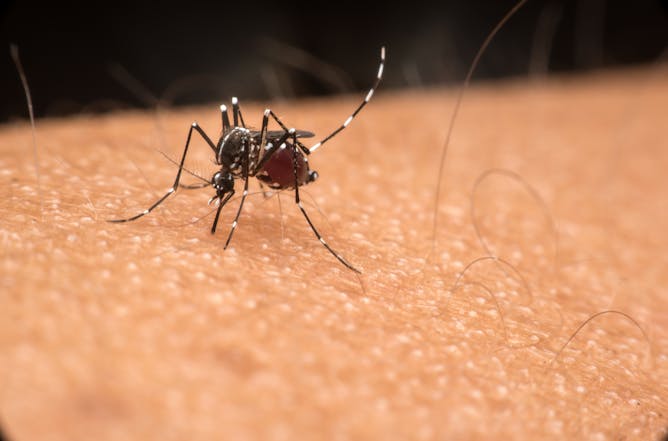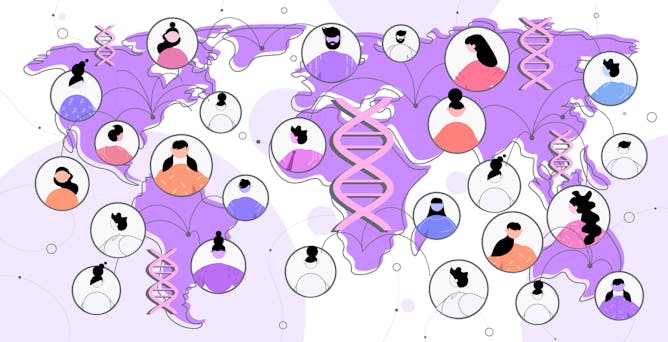|
|
|
|
Welcome to Sunday. The most-read stories of the week are displayed below. We’ve also included a collection of editors’ selections that we want to make sure you don’t miss. You can also see some of the most popular stories of the week in an e-book edition.
Last Thursday was International Day of Democracy, a United Nations observance marked by more than 120 news organizations – including The Conversation – with special coverage focused on the dangers facing democracy worldwide. Kathleen Frydl, a political historian, contributed an analysis that notes rankings in The Economist describe the U.S.'s democracy as “flawed.” Meanwhile, the U.N. dropped the U.S. to 41st in its sustainable development ranking of 193 member states this year. That lands the country between Cuba and Bulgaria on a list of climate and social equity goals.
If those assessments feel a bit off to you, Frydl might not be surprised. “A devotion to ‘American exceptionalism’ [is what] keeps the country from candid appraisals and course corrections,” she writes.
Our environment desk this week published a well-read article that has my family of cooks rethinking its relationship with our prized gas range. Boston University environmental health scholar Jonathan Levy explains that cooking with gas may produce a nice sear, but it also has climate and health downsides.
Next week, we’ll bring you stories about the country’s new poet laureate, surviving religious trauma and super-Earths.
If you’re looking forward to reading those stories, please consider a donation of any size to support our work.
|

|
Emily Costello
Managing Editor
|
|
Readers' picks
|

Mosquitoes need to feed on blood in order to reproduce. But how do they choose whom to feed on?
boonchai wedmakawand/Moment via GettyImages
Jonathan Day, University of Florida
Mosquitoes can track down potential hosts using the CO2 released by humans’ metabolic processes, a medical entomologist explains.
|
|
|
-
Rebecca Trout Fryxell, University of Tennessee
Not all cases of La Crosse disease affect the neurological system, but those that do can be severe and sometimes fatal – especially in children.
-
Jonathan Levy, Boston University
Natural gas has been marketed for decades as a clean fuel, but a growing body of research shows that gas stoves can contribute significantly to indoor air pollution, as well as climate change.
-
Gina Woodall, Arizona State University
Arizona has been a reliable vote for GOP candidates for the past 70 years. But the 2020 election of Democrat Joe Biden underscores the political impact of the state’s changing demographics.
-
Melissa K. Ochoa, Saint Louis University
Some Spanish-speaking activists are already using a different gender-inclusive term that could be a better replacement for Latino or Latina.
|
|
Editors' picks
|

Ethical and equitable scientific collaboration could help increase the genetic diversity of genomic data.
gmast3r/iStock via Getty Images Plus
Hailiang Huang, Harvard University
Existing genetic data and sequencing tools are overwhelmingly based on people of European ancestry, which excludes much of the rich genetic variation of the world.
|
|
|
-
Kathleen Frydl, Johns Hopkins University
The United States came in 41st worldwide on the UN’s 2022 sustainable development index, down nine spots from last year. A political historian explains the country’s dismal scores.
-
Dimitris Xygalatas, University of Connecticut
In Nevada, people create a makeshift city toward the end of summer and later burn it down. What’s behind this event, and what makes it meaningful?
-
Kevin Hamilton, University of Hawaii
The new discovery echoes a mission in 1931, when a five-day zeppelin flight sent robots to the stratosphere and redrew the maps of the high Arctic.
-
Ivan Erill, University of Maryland, Baltimore County
Phages, or viruses that infect bacteria, can lie dormant within chromosomes until they’re triggered to replicate and burst out of their hosts.
|
|
News Quiz 🧠
|
-
Quizmaster, The Conversation
This week: questions on inflation, wildfires, gas stoves and ants.
Download the new e-book edition
We are providing a magazine version of five stories in this newsletter to read on a tablet, e-reader or on paper. Try it out and reply to this email to tell us what you think.
|
|
|
Like this newsletter? You might be interested in our other weekly emails: About The Conversation: We're a nonprofit news organization dedicated to helping academic experts share ideas with the public. We can give away our articles thanks to the help of foundations, universities and readers like you. Donate now to support research-based journalism
|
| |
| |
| |
| |
|
|
|
|
|
|
|